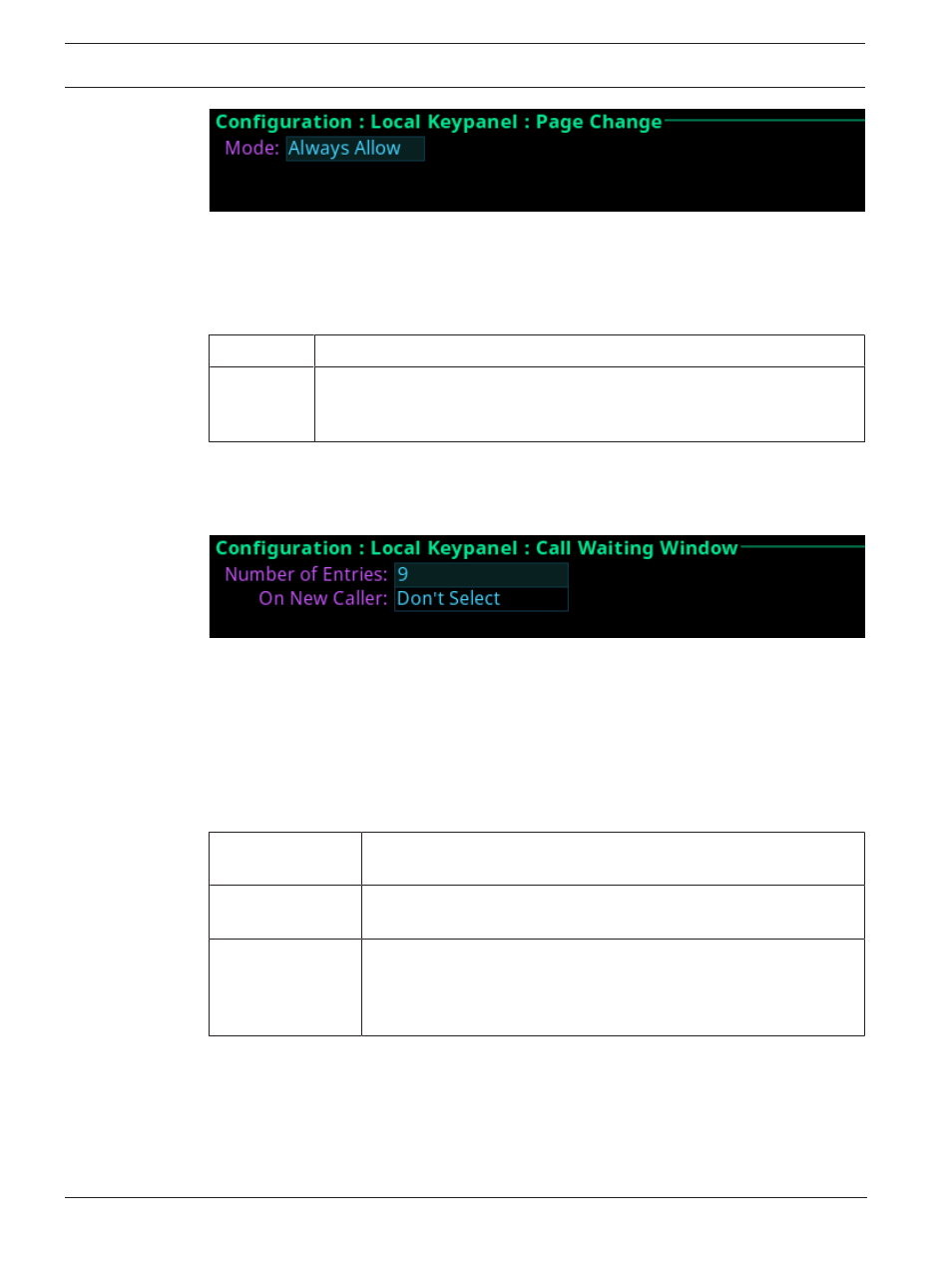5 call waiting window, 6 footswitch, Call waiting window – Telex RTS OMS OMNEO Main Station Advanced Digital Partyline Intercom Base (5-Pin Female) User Manual
Page 120: Footswitch

120
en | Configuration | Local Keypanel menu
OMS OMNEO Main Station
01-2021 | 03 | F.01U.380.820
Technical Manual
Bosch Security Systems, LLC
Figure 24.5:
Configuration | Local Keypanel | Page Change Screen
Mode Field
Use the
Mode
field to select the action of the setup pages when talk keys are active. By
default, page changes are allowed when talk keys are active.
Available options:
Always Allow
Page changes are allowed while Talk Keys are active.
No Talk Keys
Page changes are not allowed while Talk Keys are active. When page changes
are restricted due to an active talk key, the page change interface is shown in
grey.
24.5
Call waiting window
Use the
CWW
menu to configure the CWW. There are two configuration options; how many
calls show in the CWW and what happens when a new call comes in.
Figure 24.6:
Configuration | Local Keypanel | Call Waiting Window Screen
Number of Entries Field
Use the
Number of Entries
field to define the number of calls shown in the CWW. The
maximum number of entries is nine, while the minimum is three.
On New Caller Field
Use the
On New Caller
field to select what action occurs in the CWW when a new call enters
the queue.
The options available are:
Select New Call
When a new call enters the CWW queue, it goes to the top of the list
and selects the new call. The highlight moves to this item.
Don't Select
(default)
When a new call enters the CWW queue, it goes to the top of the
queue, but the highlighted item does not change.
Select If Idle
When a new call comes into the CWW queue, it goes to the top of the
queue list and the highlight moves to the new call only if the user has
not interacted with the CWW in the last five seconds or if the CWW
window is not visible.
24.6
Footswitch
Use the
Footswitch
menu to enable the footswitch feature and configure how a latched talk
key behaves when the user releases the footswitch. In normal footswitch operation, latched
talk keys go into a ready state waiting for the footswitch press. When the footswitch is
pressed, the latched talk keys become active. Then, when the footswitch releases, the latched
talk keys go back into a ready state. The device can be configured so latched talk keys become
